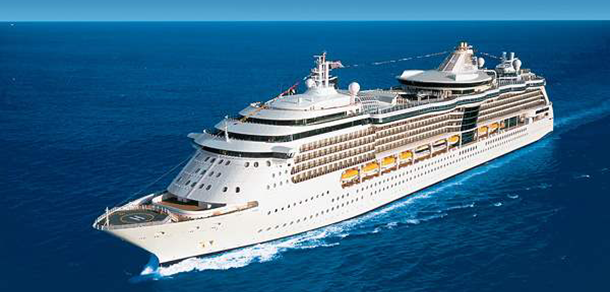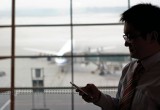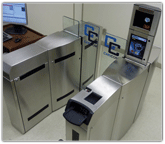Facial recognition on cruise ships moves passengers more quickly
04 December, 2017
category: Biometrics, Corporate, Transit
Facial recognition on cruise ships could one day improve the experience of travelers by reducing the time it takes for those passengers to board and re-enter ships. That’s a lesson drawn from a recent trial of the biometric authentication technology that involved multiple cruise ships and nearly 3,000 passengers, according to IDEMIA, the digital identity company that took part in the effort.
The biometric trial exceeded our expectations in terms of being able to quickly process passengers re-entering the country
The “Sea Re-entry” trial included Royal Caribbean Cruises Ltd. and U.S. Customs and Border Protection, and was conducted at Cape Liberty Cruise Port in New Jersey. IDEMIA provided its “facial capture and recognition solution to confirm the facial identities of individuals disembarking Royal Caribbean ships with the facial identities of ticketed passengers who boarded the ship at the start of a cruise.”
According to a spokeswoman for IDEMIA, here is how the process works:
- A disembarking passenger is directed to step in front of a specialized IDEMIA facial recognition camera.
- The camera locates the face and captures an image suitable for facial matching, and compares it to the facial image that captured as part of the enrollment/embarkation process.
- If there is a positive match and the passenger has nothing to declare, that traveler then walks past the Customs and Border Protection booth and exits the terminal. “The capture and match process typically is less than three seconds,” the spokeswoman said. “Our trial showed the technology to be intuitive and easy to understand. Based on exit interviews, nearly all passengers had a very favorable impression of the facial recognition technology.”
Facial recognition on cruise ships could lead to other services
The result so far? “Our trial showed about a 40 percent reduction in passenger processing time over existing manual processes,” she said. “We estimate additional efficiency gains in future trials.”
The cruise ship company echoed those words. “Royal Caribbean’s commitment to providing our guests a pleasurable experience includes making the final step of clearing customs fast, secure and frictionless,” said Thomas Hinderhofer, a Royal Caribbean official who works as director of Cape Liberty Port Operations. “The trial exceeded our expectations in terms of being able to quickly process passengers re-entering the country while at the same time addressing key border management requirements.”
More tests of facial recognition on cruise ships are scheduled, the IDEMIA spokeswoman said. The three entities “will be conducting additional live trials in 2018 as a dress rehearsal to full production,” she said. “Phase II trials will include an expansion of the technology in use as well as incorporate other enhancements and business process changes to further enhance the passenger experience.”




